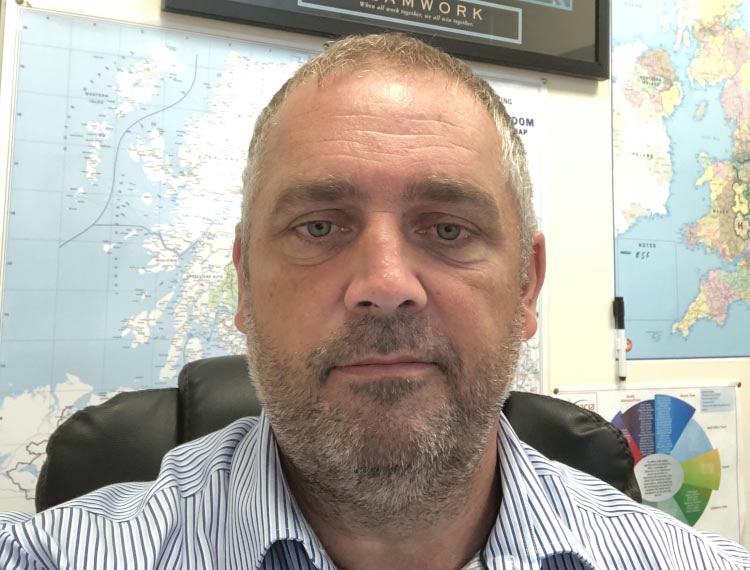Why every school, college and youth organisation needs a #MentalHealth first aider

New research has revealed the extent of mental health problems in young people and what’s particularly worrying is that they don’t know where to go for support. Andrew Houldey, from the Staffordshire company Acacia Training, explains why having trained first aiders for children’s mental health is just as important as it is for physical health:
With the pressures of exams, social media and cyberbullying, our nation’s children are under more stress than ever before. Latest research by the charity Mind has revealed that three out of five young people aged between 11 and 19 have either experienced mental health problems themselves or are close to someone who has.
The same research found that more than half of young people wouldn’t feel comfortable approaching teachers or staff if they needed help. But if they’re not coming to us, how can we tell when a young person is struggling and needs help? What signs should we be looking out for and how does this vary by age? If you already know the tell-tale signs, as many teachers or carers do, what can you do to help, how do you stay calm in a crisis situation and how do you look after your own mental wellbeing at the same time?
These questions are what motivated Acacia Training to launch a Youth Mental Health First Aid (YMHFA) course this year, to complement our existing, well established Mental Health First Aid (MHFA) course. The courses are both two days long and have similarities, but each is unique in that they take into account the difference in behaviour, language and support needed between children, teenagers and adults.
The course aims to give people the confidence they need to spot symptoms of mental ill health, the skills to offer support and guide the young person to the right help, advice on early intervention and techniques to decrease the stigma surrounding mental health. It also provides guidance on how to look after your own mental health too. It’s open to anyone who works with, lives with or supports young people – from primary and secondary schools to colleges, youth groups, clubs and residential homes, parents and carers.
Learning to think like a child
When we launched the course, I decided to enrol myself to get an insight into what it covers and how it differs to the adult MHFA course, and it was an eye-opening experience.
I realised that as ‘grown ups’ we think and act a certain way and it’s easy to expect everyone to do the same. But children think and express their feelings in a very different way. They use different terminology, they engage with different people. I began to understand the way children work – how they communicate and deal with things and how this varies by age.
Before I took part, I assumed we’d be talking about teenagers, but the realisation soon dawned on me that children can experience mental health problems from as young as four years old. It was difficult to comprehend that these issues can start so young and that they’re not getting picked up, which means that as the child gets older the problems worsen until they’re simply unable to cope.
Teenagers are facing modern challenges that we never had to deal with. When we were at school there were no mobile phones or social media. Of course school bullying still happened, but it finished when you walked through the gates and went home. Now it continues 24/7. Young people have the added pressures of wanting to look like and have the lifestyle of the heavily filtered Instagram influencers.
Rising demand vs declining support
This new research by Mind highlights the sheer scale of the pressures faced by young people today and the rising numbers with mental health problems like depression, anxiety, eating disorders, self-harming and suicidal thoughts – and this is likely to increase, not decrease, in the future. Yet nearly two in five of the 12,000 young people surveyed said they wouldn’t know where to go to access support within school.
Schools are under huge pressure to provide mental health support to their students, faced with increasingly limited resources, rising demand and gaps in NHS mental health services, and they do an amazing job. But while schools are well placed to spot the signs, Mind found that many staff lack the confidence and information they need to support their student’s mental health. This is why having trained mental health first aiders is critical.
And it’s not just schools who need this – children and young people come into contact with so many different individuals and organisations and we all have a part to play. We’ve had youth charities, clubs and associations take part in the training too.
Having an “official” first aider, someone who not only has the knowledge and confidence they need to support young people but who is also visible and well known as a point of contact for them is vital. Given that many mental health problems start in early childhood, it’s just as important for younger children as it is for teenagers.
Most organisations wouldn’t dream of not appointing at least one accredited first aider and now we need to recognise that the same applies to mental health too. It needs to treated as a normal part of life, just like physical health.
Record numbers of children are struggling, and they need to know that there’s always someone there they can talk to. As adults, we need to know how to listen and respond so that we can make sure young people get the support they need, when they need it.
Andrew Houldey, Business Developmet Manager, Acacia Training
About Acacia Training: Providing apprenticeships, short courses and government funded qualifications in a wide range of sectors, it offers accredited Mental Health First Aid and Youth Mental Health First Aid courses, to organisations across the UK.










Responses